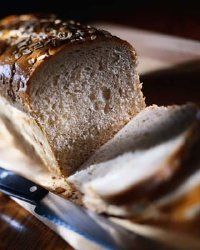Nosebleeds can run the gamut from a tiny trickle to a big gush. But while it may be disturbing to see blood drip from your otherwise placid nose, there is usually no need to worry. There are many effective home remedies for nosebleeds, and nosebleeds are typically harmless annoyances. While it may look like you're losing lots of blood, the amount is usually insignificant.
The inner nose is one of the more sensitive parts of the body. Lined with hundreds of blood vessels that reside close to the surface, the nostrils don't take kindly to being harassed and will bleed with little provocation.
Advertisement
Provocation can come from a number of sources. These are the main reasons your nose might bleed:
- Trauma, such as a fall or a sports-related injury
- Dry air
- High altitudes
- Nose picking
- Sneezing
- Nose blowing
- Rubbing the nose
- Allergies
- Upper respiratory infection
- Age (Older people have more nosebleeds because the body's tissues have shrunken and are more dry.)
Vinegar. Take a cloth or cotton ball and wet it with white vinegar. Plug it in the nostril that's bleeding. Vinegar helps seal up the blood vessel wall.
Whole-wheat bread. Zinc is a nutrient known to help maintain the body's blood vessels. Eat whole-wheat bread and brown rice, two foods high in zinc. Or, for a snack, try some popcorn, which also contains zinc.
Advertisement
